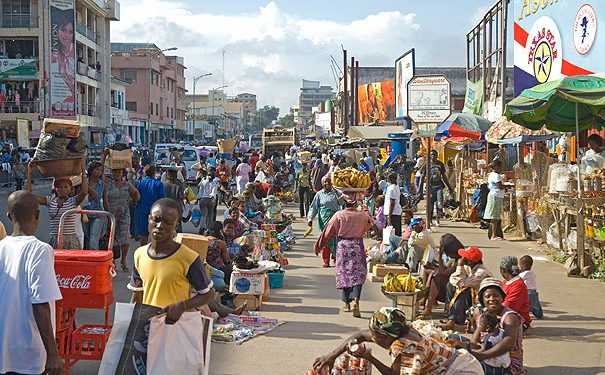Ghana’s macroeconomic situation is expected to gradually stabilize – AfDB Report

Ghana’s economy has shown high vulnerability to endogenous and exogenous shocks since the COVID-19 pandemic in 2020, a report issued by the African Development Bank (AfDB) has said.
The report stated that the post-COVID-19 economic recovery was weak, with real Gross Domestic Product (GDP) growth moderating to 3.8 percent in 2022, from 5.1 percent in 2021, and estimated at 2.9 percent in 2023, primarily due to macroeconomic instability, tightening global financial conditions, and the spillover effects of multiple shocks.
The inflation rate increased from an average of 10.2 percent for the 2017-2021 period to 43.3 percent in 2023, despite the Bank of Ghana (BoG) raising the Monetary Policy Rate (MPR) from 14.5 percent in January 2022 to 30 percent in September 2023, it said.
The fiscal deficit has dropped considerably, from 11.8 percent in 2022 to 4.5 percent in 2023, thanks to fiscal consolidation efforts and improvements in revenue performance. The current account deficit narrowed to 1.7 percent of GDP in 2023, compared to 2.1 percent in 2022 and 3.2 percent in 2021. Multidimensional poverty incidence slightly increased from 46 percent in 2017 to 46.7 percent in 2022.
The tightening of international financial conditions has exacerbated pressures for exchange rate depreciation, with consequences for Ghana’s overall debt. The cumulative annual rate of depreciation of the Ghana Cedi was 60 percent in 2022 and 17 percent in 2023.
This depreciation, combined with financing needs below the line, and high real interest rates, led to a debt burden equivalent to 93.3 percent of GDP in 2022, almost evenly split between external (43.3 percent of GDP) and domestic debt (50 percent of GDP). Ghana is in debt distress, and its debt is assessed to be unsustainable, effectively defaulting on most of its external debt in December 2022. The launch of Ghana’s Domestic Debt Exchange Program (DDEP) in December 2022 helped reduce debt to 86.1 percent of GDP in 2023.
The report further indicated that Ghana’s macroeconomic situation is expected to gradually stabilize, with favorable growth prospects in the medium term, although there are risks.
“GDP growth is projected to rebound to 3.4 percent in 2024 and 4.3 percent in 2025. Inflation is expected to decline significantly but remain outside the Bank of Ghana’s 8±2 limit, at 20.9 percent in 2024 and 11.1 percent in 2025. The Fiscal deficit is projected to widen to 4.9 percent in 2024, before narrowing to 4.2 percent in 2025 as fiscal consolidation efforts continue.
“The current account deficit is projected to widen to 1.9 percent in 2024 and 2.3 percent in 2025.”
However, it added, the outlook is clouded by several factors, including the impact of fiscal consolidation program of Post-COVID Program for Economic Growth (PC-PEG), the lingering effects of multiple shocks, limited access to finance and foreign exchange, and global macroeconomic shocks.
“Prudent monetary policy and fiscal discipline could help mitigate the risks,” it suggested.






